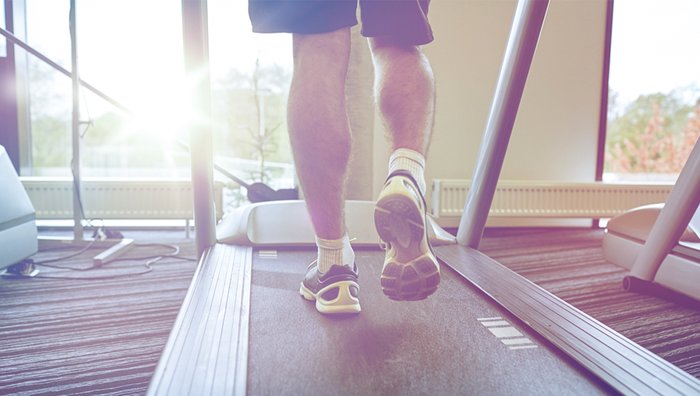You're not a morning person, and you hate the idea of jumping up and hitting cardio first thing after you awake. Frankly, that's fine—the early bird may not necessarily get the worm when it comes to cardio.
Fasted cardio has become very popular among bodybuilders and other physique competitors, as well as those who simply want to lose weight. Yes, there is evidence that you can burn fat by performing moderate cardio exercise when your glycogen levels are low in the morning, but it doesn't necessarily mean you'll burn more fat in the long run.
Several of the claims about fasted cardio have been debunked, but now we have the strong voice of Darryn Willoughby, Ph.D., to reinforce the point. There's nothing wrong with doing fed cardio and fitting it in when your schedule allows—and don't let the fasted-cardio fanatics tell you otherwise.
Willoughby is a professor of exercise and nutritional biochemistry at Baylor University in Texas, and he's here to tell you why you should skip fasted cardio—and that you can't outrun the science.
1. Fasted Cardio Is No Better at Burning Fat
Fasted cardio has been shown to break down triglycerides into fatty acids for fuel; however, studies have also shown that the utilization of that fuel is no better than with unfasted cardio, not to the point that it translates into greater fat loss over time.

2. It's Hard on Your Body
Fasted cardio is typically done first thing in the morning after an overnight fast. Most people wake up in a catabolic state, meaning that the body is breaking down protein for fuel rather than fat. So you're doing intense training when you're already breaking down muscle in a fasted state, which brings us to the final point.
3. Cardio with Protein Is Better
Rather than exercising when you're totally fasted, consider ingesting protein prior to doing morning cardio. Because you're already catabolic, feed the muscles with protein. Give them amino acids so that they can help maintain muscle protein synthesis during the cardio, rather than more muscle breaking down. Willoughby recommends a relatively small amount, like 10-20 grams.
Want to learn more about the science behind healthy eating? Check out Foundations of Fitness Nutrition, one of more than 90+ expert-designed fitness plans in BodyFit.


